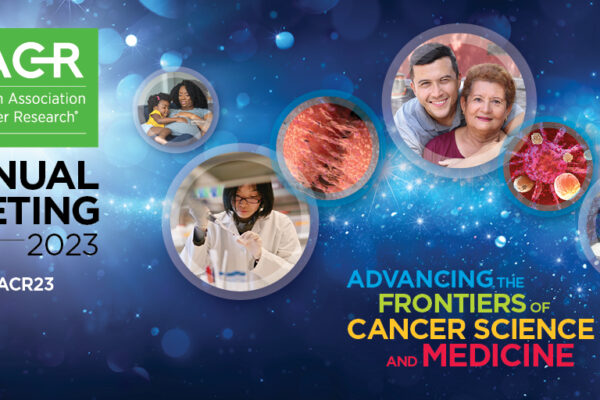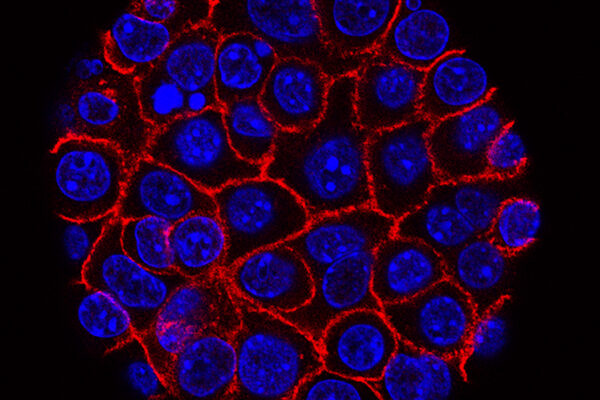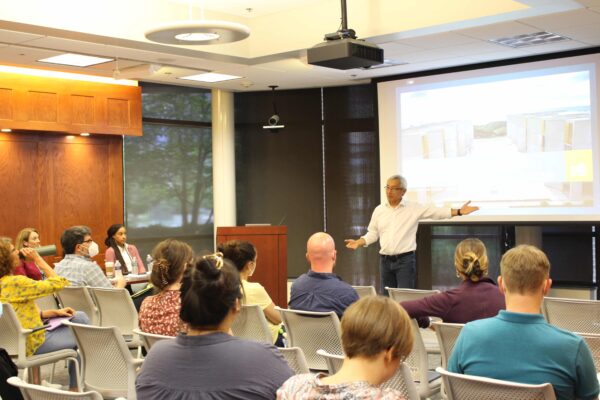PhD
Kenan Distinguished Professor
UNC-Chapel Hill
Molecular Therapeutics
Area of Interest
Our broad research interest centers on understanding the molecular basis of human carcinogenesis. Specifically, our research studies have dealt with three distinct aspects of Ras family oncogene proteins and on the discovery of novel oncogenes involved in specific human cancers.
First, we are interested in deciphering the increasingly complex nature of signal transduction pathways that mediate the oncogenic actions of Ras.
Second, we now know that the three Ras proteins represent only a mere subset of a large superfamily of Ras-related proteins. Mammalian members of this family number more than 60, with more likely to be discovered. Since Ras-related proteins share strong sequence and biochemical similarities with Ras proteins, a logical question is whether the aberrant function of any other members of this superfamily are also oncogene proteins involved in cancer development. Much of our current interest has centered on members of the Rho family of Ras-related proteins, which function as regulators of a wide spectrum of cellular processes that include actin cytoskeletal organization, gene expression and cell cycle progression. Recent studies by us and others have revealed that quite a diverse collection of oncogene proteins (including Ras) cause transformation, in part, by deregulating the function of Rho family proteins. It is generally believed that Rho family proteins may serve as key players in promoting the invasive and malignant properties of tumor cells. How Rho proteins contribute to Ras transformation, and what signaling pathways connect Ras with Rho, are questions that we are pursuing in our studies.
Third, we are involved in drug discovery efforts to target Ras for cancer treatment.
Research milestones
- Established the importance of aberrant Rho family GTPase activation and signaling in human oncogenesis.
- Determined that Ras utilizes signaling pathways (e.g., Ral GEF and Tiam1), other than the ERK mitogen-activated protein kinase cascade, to mediate oncogenesis in human cells.
- Determined that oncogenic Ras signaling is cell context dependent and that transformation of rodent versus human cells involves distinct signaling mechanisms.
News and Stories

American Association for Cancer Research’s annual meeting to feature UNC Lineberger experts, research
UNC Lineberger faculty and trainees will be presenting their research findings and sharing their insights at education sessions during the American Association for Cancer Research’s annual meeting April 14-19.

UNC Lineberger pancreatic cancer therapy studies backed by 5-year, $10.9 million NIH SPORE grant
The National Cancer Institute has awarded the UNC Lineberger Pancreatic Cancer Center of Excellence a five-year, $10.9 million Pancreatic Cancer Specialized Program of Research Excellence (SPORE) grant.

PanCAN backs Der and Bryant Labs with two-year, $340,000 award
UNC Lineberger’s Channing Der, PhD, and Kirsten Bryant, PhD, are among seven recipients of the inaugural Pancreatic Cancer Action Network (PanCAN) Therapeutic Accelerator Collaborative Award, which provides a total of $340,000 in grant support over two years.

UNC Lineberger symposium presents career options for postdoctoral fellows
UNC Lineberger hosted a symposium for postdoctoral fellows to hear from three scientists who have chosen different science career paths after earning their doctoral degree.

